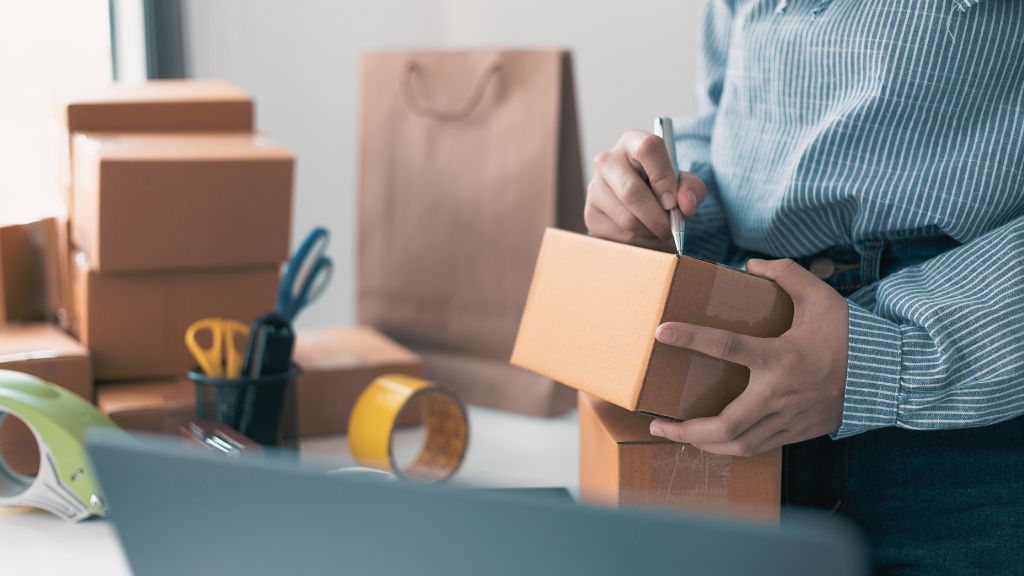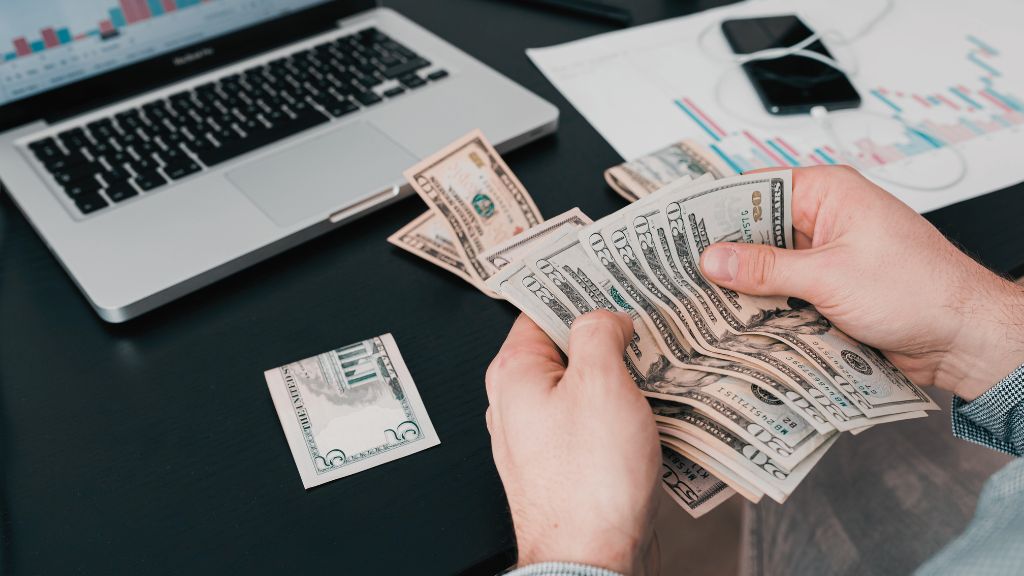In today’s digital world, making payments online or using cards is very common. Whether you are shopping for clothes, ordering food, or paying for subscriptions, you probably use some form of electronic payment. But have you ever wondered how secure these payment options are? How can you protect yourself from fraud or theft?
In this blog, we will explore which payment option can offer additional security like fraud protection, and how they work to keep your money safe.
First Understand Payment Options
Before diving into the security aspects, let’s first understand the common payment options available:
- Credit Cards: These let you borrow money from the bank to buy things, and you pay it back later.
- Debit Cards: These are connected directly to your bank account, so money is taken out right away when you buy something.
- Mobile Wallets: Apps like Google Pay, Apple Pay, and PayPal save your card details and let you pay directly from your phone.
- Bank Transfers: You can move money directly from one bank account to another.
- Cryptocurrencies: Digital currencies like Bitcoin that can be used for online transactions.
Each of these payment methods has its own set of security features. Let’s explore how they protect you from fraud.
What Are The Payment Option Can Offer Additional Security Like Fraud Protection?
Credit Cards: Built-in Fraud Protection
Credit cards are one of the most secure payment options available. Here’s why:
- Zero Liability Policy
Most credit card companies have a zero liability policy, so you don’t have to pay for any charges made without your permission. If someone steals your card or card number and uses it to buy something, you won’t be responsible for those purchases.
- Example: Imagine you lose your credit card, and someone uses it to buy a new phone. When you report the theft to your credit card company, they investigate and remove the charge from your account.
- Fraud Detection Systems
Credit card companies use advanced algorithms to detect unusual spending patterns. If a purchase looks suspicious, they might block the transaction and contact you to confirm it.
- Example: If you usually shop in your hometown and suddenly your card is used in another country, the company might flag it as suspicious and freeze your account temporarily.
- Secure Online Transactions
Credit cards often have features like two-factor authentication (2FA) for online purchases. This means you need to enter a password or a code sent to your phone to complete a transaction, adding an extra layer of security.
Also read: Difference Between Personal Statement and Statement of Purpose
Debit Cards: Immediate Fraud Alerts
Debit cards also offer some level of fraud protection, although they might not be as extensive as credit cards. Here are the key features:
- Fraud Monitoring
Banks monitor debit card transactions for unusual activity. If they spot something out of the ordinary, they might freeze your account and contact you.
- Example: If you usually spend small amounts and suddenly there’s a large withdrawal from your account, the bank might consider it suspicious and halt the transaction.
- Daily Spending Limits
Many debit cards have daily spending limits. This means that even if someone gets hold of your card, they can only spend up to a certain amount each day, minimizing potential losses.
- Chip and PIN Technology
Debit cards with chip and PIN technology are more secure than those with just a magnetic strip. The chip in your debit card creates a special code every time you make a purchase. This makes it difficult for bad guys to copy your card details and use them for fraud.
- For instance, when you buy something at a shop using your chip-enabled debit card, you need to enter your PIN. This makes it safer than just swiping your card because it adds another level of security.
Mobile Wallets: Convenience and Security
Mobile wallets like Google Pay, Apple Pay, and PayPal offer a combination of convenience and security features:
- Tokenization
Mobile wallets use a process called tokenization. Instead of storing your actual card number, they generate a random number (token) for each transaction. This means that the merchant never gets to see your card information.
- Example: When you use Apple Pay to buy groceries, the store only receives the token, not your actual card number, reducing the risk of theft.
- Biometric Authentication
Lots of mobile wallets use biometric authentication, like fingerprint or face recognition, to approve transactions. This makes it difficult for anyone else to use your wallet without your permission.
- Encrypted Transactions
Mobile wallets encrypt your transaction data, making it unreadable to anyone trying to intercept it. This adds one more way to keep hackers away.
Bank Transfers: Secure but Cautious
Bank transfers are generally secure, especially when using your bank’s official app or website. However, they do have some limitations:
- Strong Authentication
Banks require strong authentication methods, such as passwords and security codes, to access your account and make transfers. This helps prevent unauthorized access.
- Double-Check Information
When making a bank transfer, it’s important to double-check the recipient’s details. Sending money to the wrong account can be difficult to reverse.
- Example: If you’re paying a friend, make sure you have their correct account number and sort code before completing the transfer.
- Notifications and Alerts
Banks often send notifications and alerts for transactions, allowing you to quickly spot any unauthorized activity and report it.
Cryptocurrencies: Advanced but Risky
Cryptocurrencies like Bitcoin offer advanced security features but come with their own risks:
- Blockchain Technology
Cryptocurrencies work with something called blockchain technology, which is like a super safe and clear method of keeping track of transactions. Whenever you make a transaction, it’s checked by lots of computers in the network, so it’s really hard to change or mess with the records.
- Private Keys
When you own cryptocurrencies, you have a private key that gives you access to your funds. This key should be kept secure and never shared.
- Potential Risks
Cryptocurrencies are often targeted by hackers. If your private key is stolen, you could lose your funds permanently. Additionally, transactions are irreversible, so mistakes cannot be corrected easily.
Also read: What Are 2 Reasons Someone Might Want to Open a Secured Credit Card?
Which Payment Option Can Offer Additional Security Like Fraud Protection?
In the digital age, ensuring the security of your financial transactions is crucial. Among the various payment options available, one stands out for its robust security features: credit cards.
Why Credit Cards Offer the Best Security
Credit cards are widely recognized for their strong security measures. Here’s an in-depth look at the key features that make them the best option for additional security:
Zero Liability Policy
Most credit card companies offer a zero liability policy. This means that if your card is used fraudulently, you won’t be held responsible for the unauthorized charges.
This policy gives cardholders peace of mind, knowing they are protected against fraud.
- Example: If someone takes your credit card and buys something expensive with it, you can tell your credit card company about the theft. The company will investigate the fraudulent charge and ensure you are not liable for it.
Advanced Fraud Detection Systems
Credit card companies invest heavily in advanced fraud detection systems. These systems use advanced computer programs and smart learning to keep an eye on transactions and notice any strange spending habits.
When a suspicious transaction is flagged, the company may temporarily block the transaction and contact you to verify it.
- Example: Suppose you usually make small purchases in your local area, but suddenly, there’s a large transaction in another country. The credit card company might flag this as suspicious and notify you immediately, preventing potential fraud.
Two-Factor Authentication (2FA)
Many credit card issuers require two-factor authentication (2FA) for online transactions. This means that in addition to entering your card details, you must also provide a one-time code sent to your phone or email.
This extra level of security makes it more difficult for people who aren’t supposed to make a purchase to do so.
- Example: When shopping online, after entering your credit card information, you receive a text message with a unique code. You must enter this code to finalize the purchase, ensuring that only you can complete the transaction.
Secure Online Payment Protocols
Credit cards often use secure online payment protocols such as 3D Secure (like Visa’s Verified by Visa or Mastercard’s SecureCode). These protocols add an extra step during the checkout process to verify the cardholder’s identity.
- Example: During an online purchase, you might be redirected to your credit card issuer’s site to enter a password or answer a security question, providing additional assurance that you are the legitimate cardholder.
Purchase Protection
Lots of credit cards come with purchase protection. This means if you buy something using the card and it gets damaged, stolen, or lost within a specific time frame, you can get help covering the cost. This feature not only protects you from fraud but also adds value by safeguarding your purchases.
- Example: If you buy a new laptop with your credit card and it gets stolen shortly after, your card’s purchase protection policy may reimburse you for the loss.
Also read: Why Should You Block Time on a Calendar to Study on a Regular Basis?
Conclusion
In conclusion, choosing a payment option from which payment option can offer additional security like fraud protection is crucial in today’s digital age. Credit cards often provide the best protection with their zero liability policies and advanced fraud detection systems.
Mobile wallets offer convenience and security through tokenization and biometric authentication. While debit cards and bank transfers also have their own security measures, cryptocurrencies offer advanced technology but come with higher risks.
By understanding the security features of each payment option and following best practices for online safety, you can protect yourself from fraud and keep your money secure. Stay aware and make wise decisions when handling your money.



